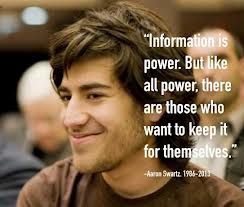The National Security Agency isn’t just looking to “keep us safe” from terrorists by collecting metadata, the NSA is sharing its information with the secretive Special Operations Division of the U.S. Drug Enforcement Administration (DEA) which is then passing that information to local authorities, covering up the NSA source.
U.S. directs agents to cover up program used to investigate Americans
by John Shiffman and Kristina Cooke, Reuters
A secretive US Drug Enforcement Administration unit is funneling information from intelligence intercepts, wiretaps, informants and a massive database of telephone records to authorities across the nation to help them launch criminal investigations of Americans.
Although these cases rarely involve national security issues, documents reviewed by Reuters show that law enforcement agents have been directed to conceal how such investigations truly begin – not only from defense lawyers but also sometimes from prosecutors and judges.
The undated documents show that federal agents are trained to “recreate” the investigative trail to effectively cover up where the information originated, a practice that some experts say violates a defendant’s constitutional right to a fair trial. If defendants don’t know how an investigation began, they cannot know to ask to review potential sources of exculpatory evidence – information that could reveal entrapment, mistakes or biased witnesses.
It isn’t just the DEA that is doing this, the Justice Department is also receiving information about non-terrorist related criminal activity.
NSA handing over non-terror intelligence
by Stewart M. Powell, SFGate
The National Security Agency is handing the Justice Department information, derived from its secret electronic eavesdropping programs, about suspected criminal activity unrelated to terrorism.
This little-known byproduct of counterterrorism surveillance continues amid controversy over the NSA’s wide-ranging collection of domestic communications intelligence, including Americans’ telephone calling records and Internet use.
It is unclear whether the referrals have been built upon the content of telephone calls and emails. Administration officials have previously assured Congress that NSA surveillance focuses on so-called metadata and in the main does not delve into the content of individual calls or email messages.
Also, some in the legal community question the constitutionality of criminal prosecutions stemming from intelligence-agency eavesdropping.
Other Agencies Clamor for Data N.S.A. Compiles
by Eric Lichtblau and Michael S. Schmidt, The New York Times
The National Security Agency’s dominant role as the nation’s spy warehouse has spurred frequent tensions and turf fights with other federal intelligence agencies that want to use its surveillance tools for their own investigations, officials say.
Agencies working to curb drug trafficking, cyberattacks, money laundering, counterfeiting and even copyright infringement complain that their attempts to exploit the security agency’s vast resources have often been turned down because their own investigations are not considered a high enough priority, current and former government officials say.
Intelligence officials say they have been careful to limit the use of the security agency’s troves of data and eavesdropping spyware for fear they could be misused in ways that violate Americans’ privacy rights.
The recent disclosures of agency activities by its former contractor Edward J. Snowden have led to widespread criticism that its surveillance operations go too far and have prompted lawmakers in Washington to talk of reining them in. But out of public view, the intelligence community has been agitated in recent years for the opposite reason: frustrated officials outside the security agency say the spy tools are not used widely enough.
At emptywheel, bmaz points out this is nothing in the Reuter’s article on the SOD wasn’t already known, just no one has been paying attention:
First, the headline is misleading. The caption is:
Exclusive: U.S. directs agents to cover up program used to investigate Americans
Well, not really (and, in fairness, the actual body of the article is about a practice that is a result of the SOD). DEA’s Special Ops Division is neither new nor secret in the least, and there is no way to “cover it up”. Google it; I got “About 289,000 results (0.29 seconds)” as a return. You will get something similar. The revelation that SOD was used in the Viktor Bout case is also not new, here is a Time story detailing it from 2011.
In fact, any criminal defense attorney who did cocaine hub conspiracy cases in the 90′s could have told you most of the Reuter’s article in their sleep. That was exactly the scene that DEA-SOD was born from. As the war on drugs went nuclear, the DEA devised what they termed the “Kingpin Strategy” (pdf):
In 1992, the DEA instituted the Kingpin Strategy that focused investigative and enforcement efforts on specific drug trafficking organizations. The DEA planned to dis- able major organizations by attacking their most vulnerable areas-the chemicals needed to process the drugs, their finances, communications, transportation, and leadership structure.
The Kingpin Strategy held that the greatest impact on the drug trade took place when major drug organizations were dis- rupted, weakened, and destroyed. This strategy focused enforcement efforts and resources against the highest-level traffickers and their organizations, and provided a systematic way of attacking the various vulnerabilities of the organiza- tions. By systematically attacking each of these vulnerabilities, the strategy aimed to destroy the entire organization, and with it, the organization’s capacity to finance, produce, and distrib- ute massive amounts of illegal drugs. Each blow weakened the organization and improved the prospects for arresting and prosecuting the leaders and managers of the organizations.
The Kingpin Strategy evolved from the DEA’s domestic and overseas intelligence gathering and investigations.
And from Kingpin sprung the Special Operations Division:
Under the original Kingpin Strategy, DEA headquarters often dictated the selection of Kingpin targets. In response to the SACs’ concerns, Administrator Constantine agreed to allow them more latitude in target selection. In conjuction with this decision, he established the Special Operations Division at Newington, Virginia, in 1994 to coordinate multi-jurisdictional investigations against major drug trafficking organizations responsible for the flow of drugs into the United States.
On this morning’s Democracy Now!, Guardian journalist Glenn Greenwald responded to a report by Reuters.
Transcript can be read here.
“It’s a full-frontal assault on the Fourth, Fifth and Sixth Amendments and on the integrity of the judicial process, because they’re deceiving everyone involved in criminal prosecutions about how this information has been obtained,” Greenwald says.
 Today marks the one year anniversary of the death of Aaron Swartz, the computer coder and Internet freedom activist, who committed suicide while facing prosecution on federal hacking charges. So, today, in Aaron’s memory and for the causes he believed in, Harvard University Professor Lawrence Lessig is walking across New Hampshire
Today marks the one year anniversary of the death of Aaron Swartz, the computer coder and Internet freedom activist, who committed suicide while facing prosecution on federal hacking charges. So, today, in Aaron’s memory and for the causes he believed in, Harvard University Professor Lawrence Lessig is walking across New Hampshire



Recent Comments